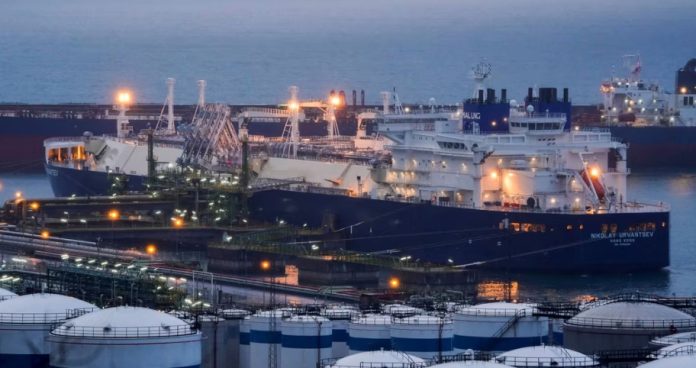For the second winter Germany remains without gas supplies from Russia. However, the Germans themselves are optimistic: for the gas shortage to become a reality, many things have to go wrong, Deutsche Welle reports.
In the first year of the war in Ukraine, there were fears in Europe that there would be energy shortages during the cold winter months. At the end of August 2022, the Russian state-owned company cut off all gas supplies to Germany. But now, according to a survey commissioned by the German Association of the Energy and Water Industry (BDEW), only 14 per cent of Germans surveyed believe the coming winter could lead to supply shortages.
64% of Germans are confident that they will survive the winter without any major problems – even if the supply situation remains unstable. Moreover, 18 per cent believe that Germany will survive the winter without any problems at all. Only 4 per cent were indecisive.
This means that four out of five participants surveyed believe that Germany is well prepared for the coming winter. BDEW managing director Kerstin Andreae said:
Thanks to the good cooperation between the energy industry and politicians on the issue of supply security over the past year-and-a-half, we can now be relatively optimistic about the supply situation this winter.
According to Klaus Müller, president of the Federal Network Agency (BNetzA), which regulates Germany’s electricity, gas and telecommunications sectors, the country is in a much better position to prepare for winter. He stressed that gas imports were stable and German gas storage facilities were full by 5 November.
Müller’s forecasts are based on six new scenarios modelling gas supplies to Germany in the coming months. BNetzA presented these models at the beginning of November, and only two scenarios are not particularly optimistic.
If the winter remains moderately cold, there is little threat of supply disruptions, according to BnetzA. However, this could change if temperatures drop significantly, as they did in the winter of 2012.
Another problem could be a complete cut-off by Russia of gas supplies to Europe via Ukraine at the end of this month. In this case, Germany, which currently has the largest storage capacity in the EU, would be forced to increase gas exports to Austria and south-eastern Europe.
The latter problem could arise if Germany is unable to import enough liquefied natural gas through terminals in the Netherlands and Belgium. This would happen if domestic consumption in these neighbouring countries increases due to lower temperatures.
However, Müller advised Germans to consume energy sparingly. He said:
No one should be too cold, but we ask people to continue to think carefully about how they can reduce their consumption.
Using less gas will also save money, Müller said. The average German household will save about 440 euros ($472) by using less gas between October 2022 and September 2023.
If Germany does run out of gas this winter, it won’t happen until February at the earliest. But for this to happen, several other things need to happen at the same time.
Firstly, winter temperatures must be particularly low. Secondly, homes and industry must maintain a high level of consumption. Thirdly, Russia will stop supplying gas via Ukraine in November. Fourth, Germany will be forced to export significant amounts of gas from its storage facilities to Southern Europe. And fifth, gas imports from Belgian and Dutch gas terminals will be significantly reduced.
Of course, such a scenario cannot be ruled out. However, experts believe that the probability that all this will happen at the same time is extremely low.
